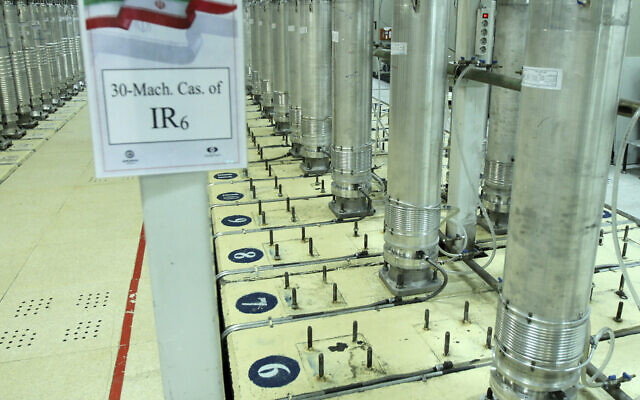



Western countries on Wednesday formally submitted a new resolution critical of Iran at the International Atomic Energy Agency ahead of its board meeting, diplomatic sources said, pushing ahead despite Iran’s warnings against the move.
“The text was formally submitted” just before midnight on Tuesday, a diplomatic source told AFP on condition of anonymity, with a second diplomatic source confirming the information.
Britain, France, and Germany are seeking to censure Iran for what they say is poor cooperation with the UN nuclear watchdog over its nuclear program.
Earlier, Iran’s Foreign Minister Abbas Araghchi warned the three allies against pursuing the resolution.
Araghchi, speaking with his French counterpart, Jean-Noel Barrot, “strongly condemned the decision of the three countries of Germany, France, and the United Kingdom” in moving to propose the draft, warning it “will only complicate the matter further,” according to a statement by the ministry on Wednesday.
Diplomats told AFP that Paris, Berlin, and London had planned to present the resolution with a view to a vote probably on Thursday.
They said the planned censure is driven by a need to raise diplomatic pressure on Iran to return to compliance with nuclear rules and address the IAEA’s long-standing concerns.
Araghchi also said in his phone conversation that the measure by the European powers is “in clear contradiction to the positive atmosphere created in the interactions between Iran and the agency.”
Rafael Grossi, the head of the United Nations nuclear watchdog, arrived in Tehran on November 13 for a two-day trip that included a visit to Iran’s major enrichment sites in Fordo and Natanz. Iran viewed the trip as positive.
But Iranian nuclear chief Mohammad Eslami has warned against any “interventionist resolution” targeting its nuclear program and threatened “immediate countermeasures.”
The agency has said that Iran has taken steps toward halting the expansion of its stockpile of highly enriched uranium, according to a confidential report by the International Atomic Energy Agency (IAEA) seen by AFP on Tuesday.
Tensions between Iran and the agency have repeatedly flared since a 2015 deal curbing Tehran’s nuclear program in exchange for sanction relief.
The deal fell apart after then-US president Donald Trump unilaterally withdrew the United States in 2018 and reimposed heavy sanctions on Iran.
Tehran in response stepped back from its mandates under the deal, increasing its enrichment levels up to 60 percent, close to the 90% threshold required to develop a nuclear bomb.
Iran, however, has always denied seeking a nuclear weapon, saying the nuclear developments are for civil and peaceful purposes.
According to the IAEA, Tehran is the only non-nuclear weapon state to enrich uranium to 60%.
The agency said on Tuesday that Iran had increased its stockpile of enriched uranium in recent months, reaching more than 32 times the cap set in the 2015 nuclear deal.
The stockpile was estimated at 6,604.4 kilograms as of October 26, up 852.6 kilos from the last quarterly report in August.
On Thursday, Araghchi told the visiting IAEA chief Iran was “willing to negotiate” based on the “national interest” and “inalienable rights,” but was not “ready to negotiate under pressure and intimidation.”
He also said on Saturday that if a resolution against Tehran was passed, Iran would “take new measures in our nuclear program that they will certainly not like.”
The veteran diplomat was Iran’s chief negotiator in talks that led to the 2015 nuclear deal.


